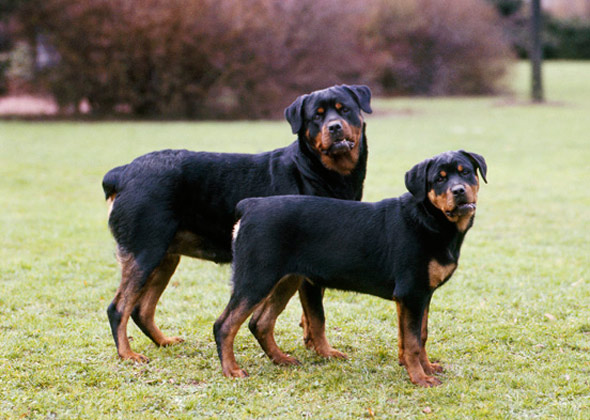Worst Large Dog Breeds for First-Time Owners
Published on March 03, 2015
Skip To
Making the decision to get a dog is a big one, but deciding to start out with a large dog breed? Well, that’s huge. Many people find themselves drawn to large or giant breeds, and there are lots of large breeds that are appropriate choices for first-time owners. But, with great size come certain challenges. For example, at only a few months old, a large breed dog (that lacks proper training) has the size and strength to accidentally knock you over.
We already showed you the five large dog breeds chosen by the 218 veterinary professionals surveyed (including vets, veterinary technicians and office managers) as the best options for new owners. Today, we’re looking at the breeds voted to be the worst choices. (And, if you’re thinking a smaller breed might be more up your alley, we have the best and worst of them, too!)
That being said, please know that we don’t believe any single dog breed is bad (or good) across-the-board. Every dog is an individual, and his behavior (good or bad) will come from his personality, genetics, training and owner. So, just because a dog is on this list, does not mean you should never consider owning one — it simply means that it’s a breed that our professionals say typically requires more work, training and experience.
More From Vetstreet:
We already showed you the five large dog breeds chosen by the 218 veterinary professionals surveyed (including vets, veterinary technicians and office managers) as the best options for new owners. Today, we’re looking at the breeds voted to be the worst choices. (And, if you’re thinking a smaller breed might be more up your alley, we have the best and worst of them, too!)
That being said, please know that we don’t believe any single dog breed is bad (or good) across-the-board. Every dog is an individual, and his behavior (good or bad) will come from his personality, genetics, training and owner. So, just because a dog is on this list, does not mean you should never consider owning one — it simply means that it’s a breed that our professionals say typically requires more work, training and experience.
More From Vetstreet:











